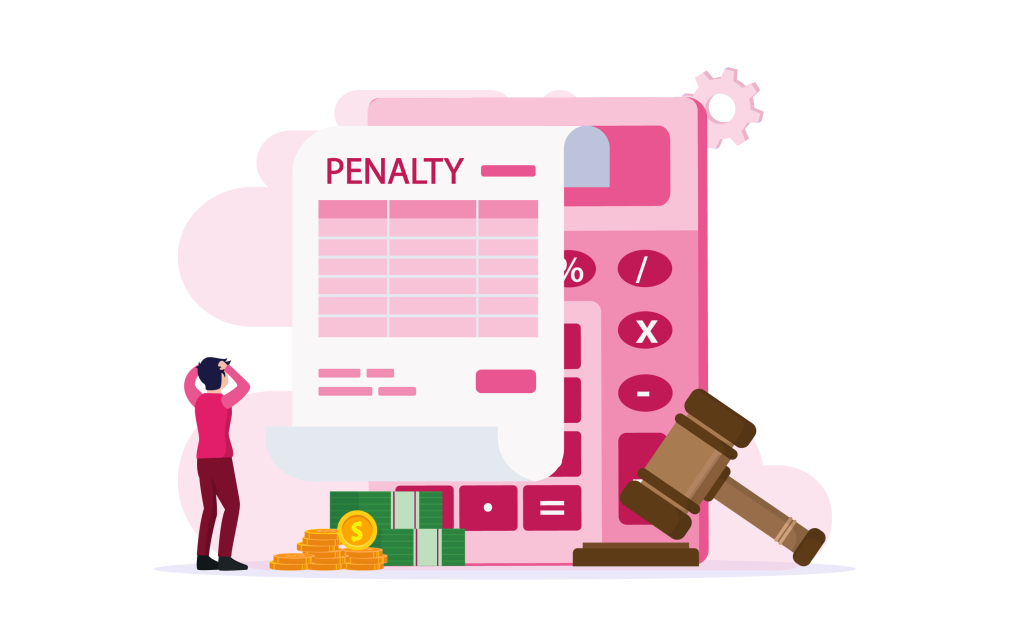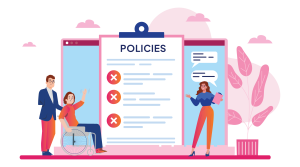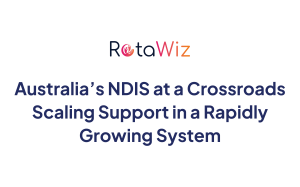31 March, 2025
What NDIS Employers Need to Know About SCHADS Award Penalties and Allowances
NDIS
5 min read

The National Disability Insurance Scheme (NDIS) sector is governed by the Social, Community, Home Care and Disability Services Industry Award (SCHADS Award), which sets out fair pay, penalty rates, and allowances for employees. Understanding these regulations is crucial for NDIS providers, disability support organizations, and home care employers to maintain compliance, ensure fair compensation, and improve workforce retention.
In this blog, we will break down the latest SCHADS Award penalties and allowances, helping you stay updated with trending industry changes and compliance requirements.
SCHADS Award Penalty Rates: What You Must Know

Penalty rates compensate employees for working outside standard hours, ensuring fair pay for their contributions. Under the Fair Work Ombudsman’s latest updates, the key penalty rates under the SCHADS Award include:
1. Overtime Penalties
- Full-time employees are entitled to overtime pay when working beyond their rostered ordinary hours.
- Part-time and casual employees qualify for overtime when exceeding:
- 38 hours per week
- 76 hours per fortnight
- 10 hours in a single shift.
Trending Tip: Ensuring accurate NDIS workforce scheduling can help prevent unnecessary overtime expenses. Automating shift management with rostering software can ensure compliance while optimizing costs.
2. Shift Work Penalty Rates
Employees working outside normal business hours receive penalty rates to compensate for inconvenient shift timings. These include:
- Afternoon Shift (ending after 8 PM but before midnight): Additional 12.5% pay.
- Night Shift (ending after midnight or starting before 6 AM): Extra 15% pay.
- Public Holiday Work: Employees receive 150% (double time and a half) of their normal pay.
Pro-Tip: Organizations can better manage shift work expenses by integrating compliance-focused workforce management tools into their payroll system to calculate correct penalties.
3. Weekend Penalty Rates
- Saturday work: Employees are entitled to an additional 50% loading on their base pay.
- Sunday work: Employees receive 100% loading (double time) for their hours worked.
Industry Insight: Employers must track weekend shifts accurately to avoid payroll disputes and ensure financial sustainability.
Allowances Under the SCHADS Award

In addition to penalty rates, employers must provide various allowances to employees to compensate for extra responsibilities, uniform requirements, and work-related expenses.
1. First Aid Allowance
Employees who hold a first aid certificate and are responsible for first aid at work must receive an extra weekly allowance. Part-time and casual employees get a proportionate amount based on hours worked.
Key Takeaway: Ensure all eligible employees are receiving their due first aid allowances and update records regularly.
2. Uniform and Laundry Allowance
If employees are required to wear specific uniforms, employers must either provide the uniform or pay a uniform allowance. Additional laundry allowances apply if employees must clean their work attire.
Actionable Tip: Avoid non-compliance penalties by including uniform and laundry allowances in payroll processing.
3. Travel and Vehicle Allowance
Employees required to use their personal vehicles for work-related travel, such as visiting clients, must be reimbursed with a vehicle allowance. Travel time between clients during work hours is considered paid work time.
Best Practice: Implement automated mileage tracking tools to ensure fair and accurate reimbursements.
4. On-Call Allowance
If employees are required to be available for recall to work outside their normal hours, they must be paid an on-call allowance. This varies depending on whether it falls on a weekday, weekend, or public holiday.
Employer Insight: Set clear on-call policies and ensure fair compensation to avoid workforce dissatisfaction.
5. Sleepover Allowance
Employees required to stay overnight at their workplace or client’s residence must receive a sleepover allowance. If they are required to perform duties during the sleepover period, they must be compensated accordingly.
Important Note: Employers should define sleepover expectations clearly to avoid misunderstandings and ensure compliance with wage laws.
Additional Considerations for NDIS Providers
1. Broken Shifts
- Employees may work up to three periods of work with two unpaid breaks.
- The total span of a broken shift must not exceed 12 hours.
- Employees receive a broken shift allowance based on the number of unpaid breaks.
Why This Matters: If not managed properly, broken shifts can lead to costly compliance issues. Employers should ensure proper shift planning and rostering solutions to streamline operations.
2. Minimum Engagement Periods
- Casual home care employees must now be paid for a minimum of two hours per shift (effective July 2022).
- Part-time employees have designated minimum engagement periods per shift.
Quick Fix: Regularly review employment contracts and align engagement periods with Fair Work regulations.
3. Managing Remote and Mobile Workforce
With many NDIS support workers providing services in multiple locations, employers should:
- Implement digital timesheets to accurately track working hours.
- Use GPS-enabled workforce management solutions to ensure compliance with travel and shift timing regulations.
- Keep an updated compliance checklist for all field workers.
Tech Solution: Investing in workforce automation software can help track mobile employees, ensuring fair compensation and compliance with SCHADS Award regulations.
How Employers Can Stay Compliant & Optimize Costs
- Use Smart Rostering Solutions: Implement automated workforce management tools to optimize scheduling and prevent unnecessary penalty rate payouts.
- Regular Payroll Audits: Conduct internal payroll audits to ensure employees receive their correct penalty rates and allowances.
- Stay Updated with Fair Work Changes: Subscribe to Fair Work Ombudsman alerts and NDIS workforce compliance updates.
- Invest in Compliance Training: Educate HR and payroll teams on SCHADS Award regulations to avoid breaches.
- Digitize Compliance Tracking: Use cloud-based HR solutions to monitor employee shifts, allowances, and penalty rates in real time.
Final Thoughts
Understanding SCHADS Award penalties and allowances is vital for NDIS providers, disability support employers, and home care agencies to maintain compliance and ensure fair pay. Keeping up with these changes will not only reduce risks of non-compliance but also improve employee retention and job satisfaction.
Want to simplify your workforce compliance?
Consider NDIS rostering and payroll integration solutions to manage shifts, track penalties, and ensure seamless payroll processing.
Stay ahead of NDIS workforce compliance – bookmark this guide for future reference!


